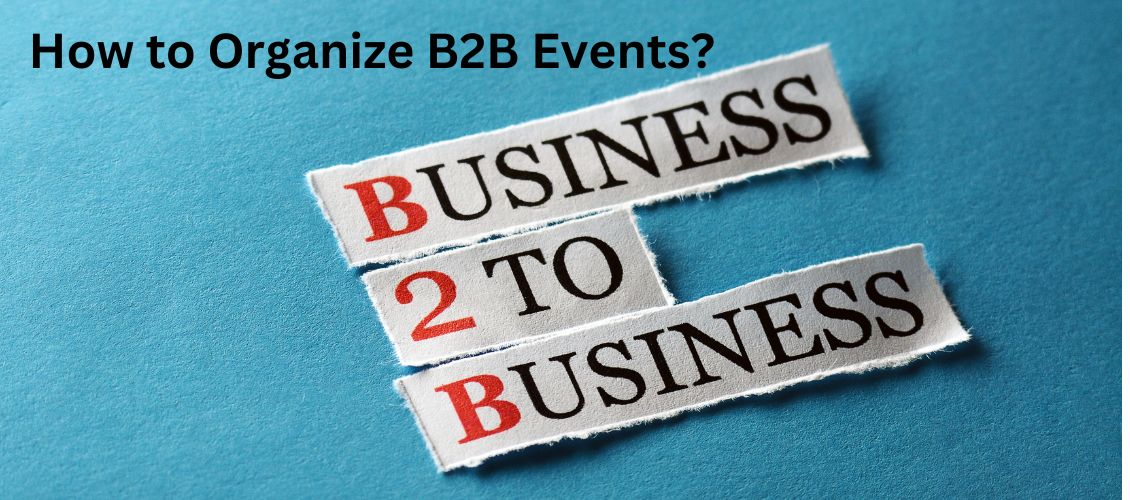Organizing a B2B event might seem like navigating a maze at first, but trust me, it’s worth every effort. These events are powerful tools for networking, brand awareness, and closing deals. But where do you start?
This guide is here to walk you through every step.
What Are B2B Events?
B2B (Business-to-Business) events are gatherings where businesses interact, collaborate, and build professional relationships. These could be trade shows, seminars, webinars, or networking meetups focused on industry-specific goals.
Importance of B2B Events in Modern Business
Why bother with B2B events? They’re a goldmine for lead generation, brand positioning, and creating partnerships. In today’s competitive market, they give you that much-needed edge to connect with key players in your industry.
Understanding B2B Event Marketing
What Is B2B Event Marketing?
B2B event marketing involves strategies and activities to promote and manage events that target businesses instead of individual consumers. Think of it as crafting data-driven experiences that drive business growth.
Benefits of a Strong B2B Event Marketing Strategy
A well-planned marketing strategy ensures higher attendance, better engagement, and a stronger return on investment (ROI). Plus, it’s a surefire way to showcase your brand as an industry leader by leveraging analytics tools and marketing automation.
Planning Your B2B Event
Defining Your Goals and Objectives
Start with the “why.” Are you aiming to generate leads, launch a product, or build relationships? Clear objectives steer every decision and help prioritize tasks.
Understanding Your Target Audience
Who are you speaking to? Knowing your audience’s pain points and interests helps you design an event they’ll actually care about, like personalized content tailored to their needs.
Choosing the Right Format for Your Event
From hybrid events to large-scale conferences, the format you choose should align with your goals and audience preferences. Integrating virtual reality (VR) can also elevate the attendee experience.
Developing a B2B Event Marketing Strategy
Pre-Event Marketing Ideas
Building Buzz with Email Campaigns
Emails are your best friend. Send out teasers, sneak peeks, and personalized invitations using customer relationship management (CRM) tools to keep your audience excited.
Leveraging Social Media to Promote Events
Platforms like LinkedIn and Twitter are goldmines for B2B promotion. Create event-specific hashtags, share countdowns, and encourage engagement with interactive posts.
During-Event Engagement Tactics
Use live polls, Q&A sessions, and gamified challenges to keep attendees hooked throughout the event.
Post-Event Follow-Up Strategies
Don’t just pack up and leave. Send thank-you emails, share event highlights, and keep the conversation going with attendees by using analytics-driven follow-ups.
How to Organize B2B Events Step by Step?
Budgeting and Resource Allocation
Figure out how much you can spend and prioritize essentials like technology platforms, venue, and catering.
Choosing the Perfect Venue
Location matters. Whether physical or virtual, your venue should be accessible, professional, and aligned with your brand image. For virtual events, ensure your platform supports seamless engagement features.
Partnering with Sponsors and Vendors
Sponsors can help offset costs while vendors add value to the attendee experience. Offering custom sponsorship packages can also enhance partnerships.
How to Promote B2B Events Effectively?
Harnessing Social Media for B2B Promotion
Best Practices for Social Media Campaigns
Share content tailored to each platform. Use eye-catching visuals, highlight keynote speakers, and target the right audience with precise paid ads.
Utilizing Paid Advertising and SEO
Combine paid ads with search-engine-optimized content to boost visibility. Don’t underestimate the power of long-tail keywords for niche targeting.
Challenges in B2B Event Planning and How to Overcome Them
Common Roadblocks in B2B Events
Issues like low attendance, technical glitches, or limited engagement are common but manageable with proactive planning.
Tips for Smooth Execution
Have a backup plan, test your tech, and maintain clear communication with your team. Always leverage real-time monitoring tools for swift troubleshooting.
Measuring the Success of Your B2B Event
Key Metrics to Track
Look at attendance numbers, engagement levels, and post-event feedback to evaluate your event’s performance. Utilize advanced analytics platforms for a more granular view.
Gathering Feedback for Continuous Improvement
Use surveys and one-on-one chats to gather insights. What worked? What didn’t? Improve for next time with actionable data from your event management system.
FAQs
What is B2B event marketing?
B2B event marketing is about planning and promoting events designed for businesses to connect, collaborate, and grow using modern tools like CRM platforms and data analytics.
How do you promote B2B events on social media?
Use platforms like LinkedIn for professional outreach, create event-specific hashtags, and leverage interactive content like polls and videos.
How do you organize B2B events step by step?
Start with clear goals, set a budget, choose a venue or platform, promote the event, and follow up using data-driven strategies.
What are some unique B2B event marketing ideas?
Host hybrid events, incorporate VR experiences, or use gamification to engage attendees in a fresh, memorable way.
How do you measure the success of a B2B event?
Track attendance, engagement, lead generation, and feedback using event analytics tools to assess your event’s impact effectively.
